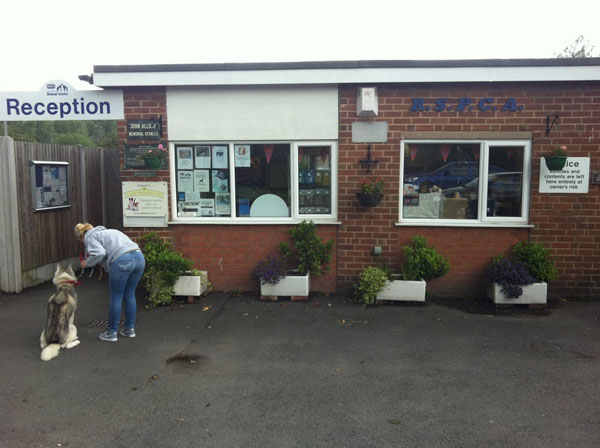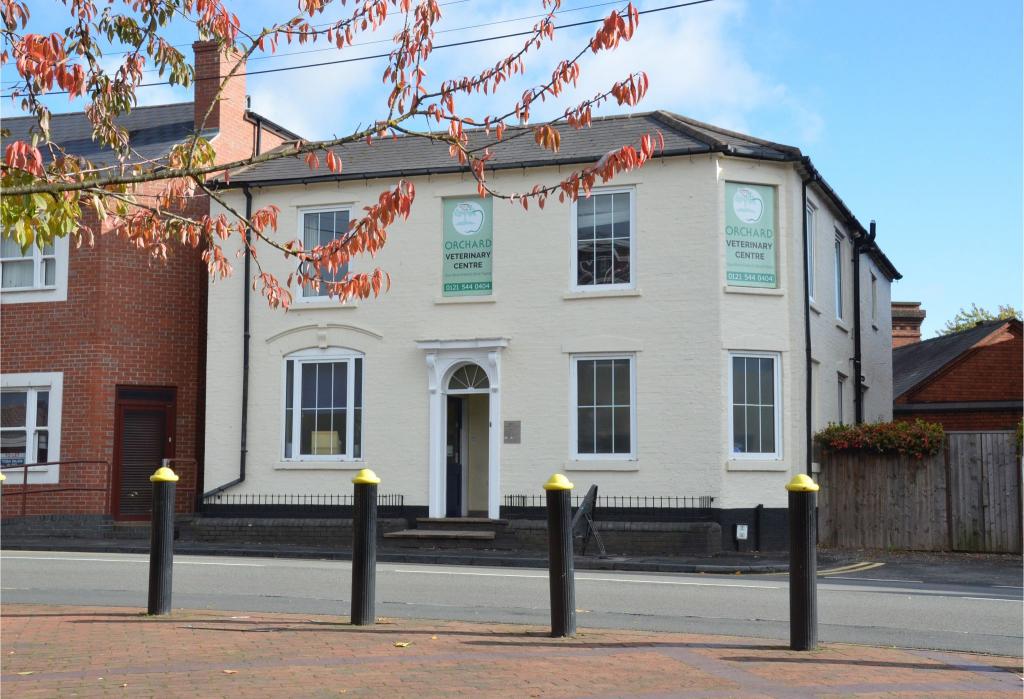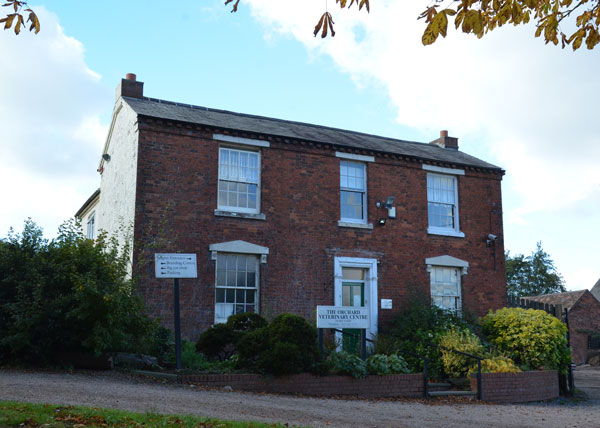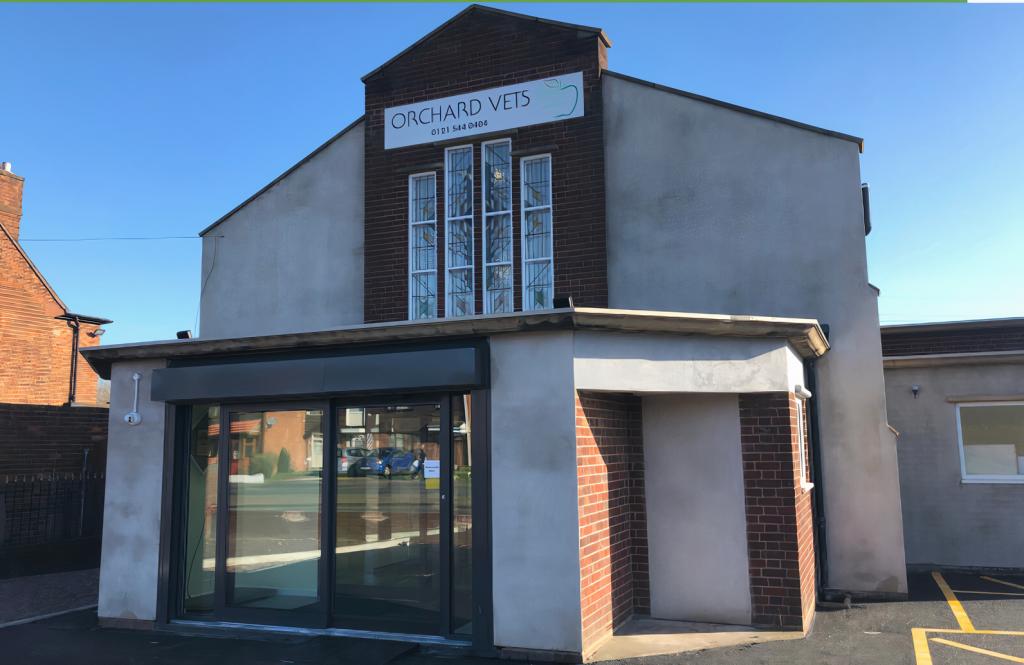Short History
A Short History of Orchard Vets
Orchard Vets was started by vet John Dudley and vet nurse Wendy Terry in 1978. It was not that long after the James Herriot era when human and animal treatment still relied on many ancient remedies with only a few modern ones on hand. But medicine was rapidly developing and in the late 70s there was a useful, if small, selection of antibiotics, anaesthetics and other medicines which had not been available to Herriot. The years that followed have seen fantastic developments in both human and veterinary medicine, changing the face of medical care out of all recognition.
The 1970s was a time when vets were not allowed to advertise and companies were not permitted to own veterinary practices—a far cry from the situation today with half of all vet clinics run by large corporate organisations. Orchard Vets remains one of the few independent practices in the West Midlands. John is still the senior vet and Wendy is Practice Manager.
Both John and Wendy had previously worked at the RSPCA hospital in the Weoley Castle area of Birmingham. It was a time when pet ownership was sometimes a more casual affair than today. Many “latch-key” dogs were let out to roam in the mornings, not returning until the evening feed, which was usually left-over human food. So it was common to see dogs wandering the streets, often in groups, and this meant that road traffic accidents involving dogs were frequent and kept RSPCA vets busy. There were few specialist vets at that time so John and Wendy became amongst the early experts in bone and joint surgery as they had to deal with so many injuries.
Wandering dogs often strayed and became lost. It was, at that time, the responsibility of the police to deal with strays so each police station also had dog kennels. In those days, if you were an offender spending time in the cells, the barking from the kennels next door may have been an additional reason for a sleepless night! The RSPCA, funded by donations, collected the dogs from the police every day and tried to re-home them from their large kennels which were adjacent to the hospital.
Disease was another common problem. Effective vaccines were available but it was easy and cheap to own a pet and the owners of latch-key dogs would rarely pay to protect them. Consequently, canine distemper was a major endemic disease across the country. Wendy and John saw dozens of cases each day. The illness would start with cold-like symptoms, coughing and nasal discharge, which would gradually resolve over two to four weeks. Then, just as the dog seemed to have recovered, it would be hit by fits or paralysis and die.
Many of the strays entering the RSPCA kennels brought the disease with them, allowing it to spread to the other inmates. If only these dogs could be vaccinated, so much suffering could be prevented. The charity did not believe that the cost could be justified for the hundreds of thousands of dogs dealt with across the nation each year. Pharmaceutical companies were persuaded to donate vaccine and John, with two colleagues, began a clinical trial to test vaccination in the kennels. The trial was published and was so successful that many scientists round the world wanted details and the RSPCA was eventually persuaded to invest the money to vaccinate all dogs entering its kennels across the country. The result was that, within a few years, distemper almost disappeared from the UK. Now, many younger vets have never seen a case but it is held at bay only by our pets continuing to receive their regular boosters.
The Practice moved to its Church Street premises in Oldbury in the early 1980s. the building had been a hardware shop since Victorian times and still had the original window displays, counters, storage and some old stock. All of this was donated to the Black Country Museum and now forms the corner hardware shop in their main street. The Church Street site was once occupied by Oldbury’s manor house which was surrounded by orchards and Orchard Street, opposite, is still a reminder of that fact. Apples and orchards had other more personal associations for John so it seemed natural that the Practice should become Orchard Vets. The Oldbury branch moved from Church Street to new state-of-the-art premises in Birchfield Lane in 2020.
The Wednesbury branch was just a small outpost of the Practice for many years and was located in Lower High Street. The current site was purchased from Lloyds Bank in 2008 and now offers a full veterinary service in its own right. Many of the original features of this art deco building remain, including the large vaults.
After a period in the High Street the Harborne branch moved in 1996 to Home Farm, a grade II listed former farm house in the middle of the Harborne Golf Club. This site was previously the Police Dog training centre but since the mid-nineties has provided veterinary care and cat boarding from an oasis of peaceful countryside in the middle of the bustling city.
The Practice has developed a number of areas of expertise. Most of the staff have been with Orchard Vets for many years and have built a personal relationship with clients and an intimate knowledge of their needs. These are some of the reasons why, as an independent practice, Orchard Vets has become one of the foremost respected and reliable providers of veterinary care in the West Midlands.





